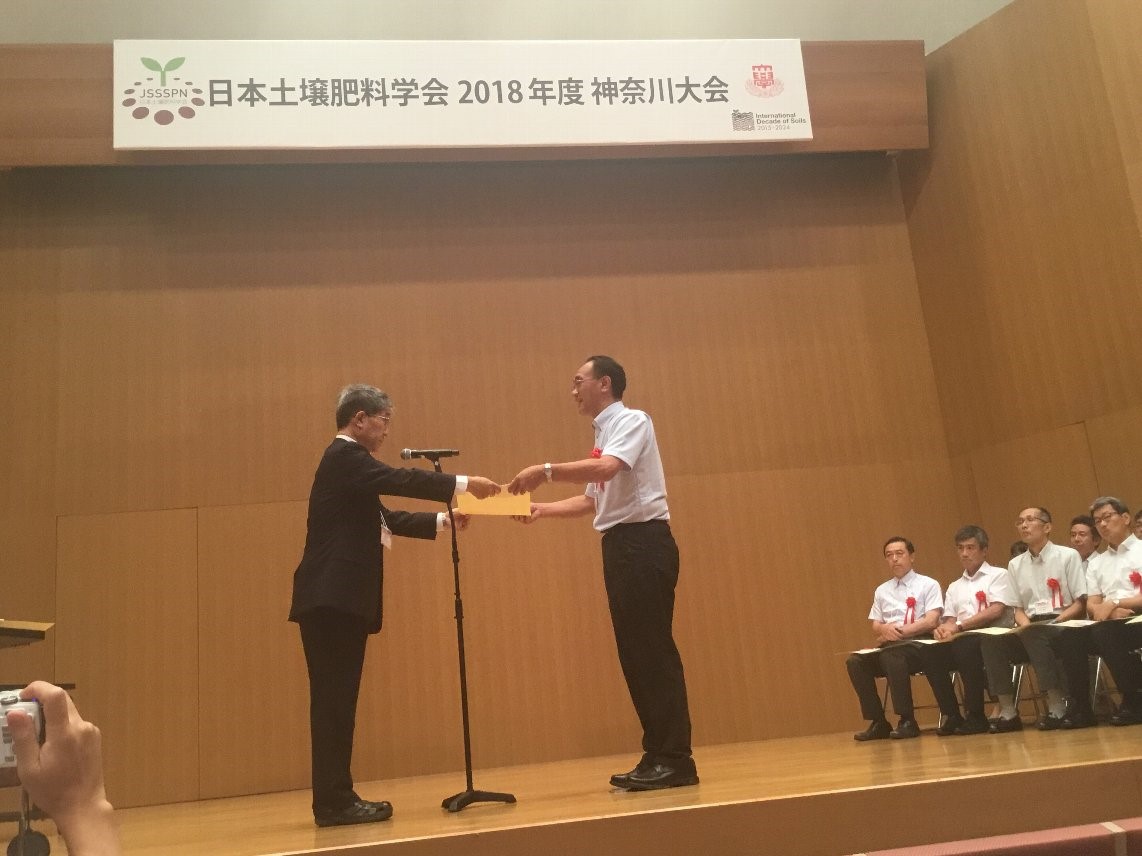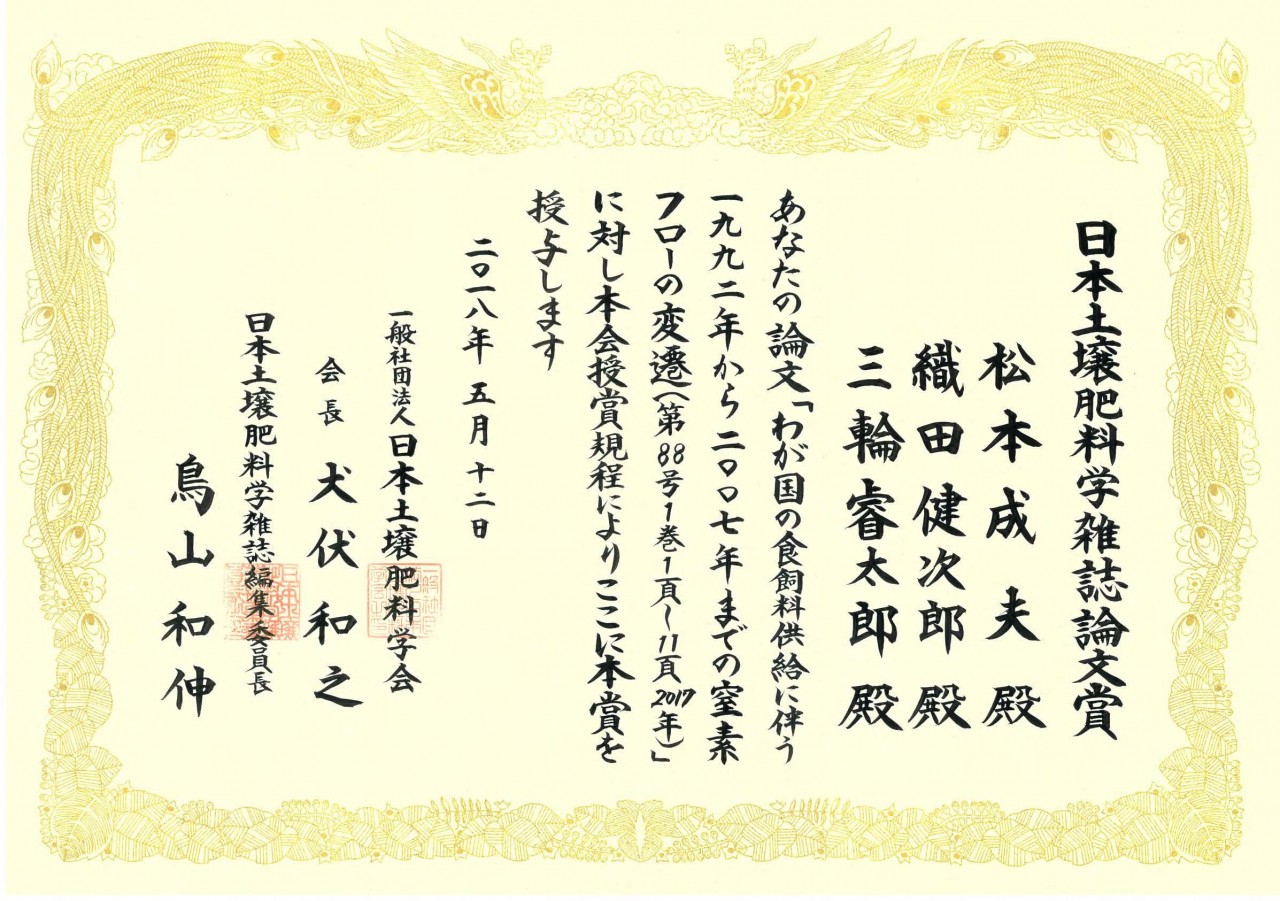Dr. Naruo Matsumoto, a senior researcher in the Research Strategy Office and JIRCAS’s regional representative for Southeast Asia, accepted the 2018 Japanese Society of Soil Science and Plant Nutrition (JSSSPN) Journal Award.
Dr. Naruo Matsumoto, a senior researcher in the Research Strategy Office and JIRCAS’s regional representative for Southeast Asia, accepted the 2018 Japanese Society of Soil Science and Plant Nutrition (JSSSPN) Journal Award. The award honors authors who have published outstanding articles in the Japanese Journal of Soil Science and Plant Nutrition, thus contributing to expanding the knowledge base relating to soil science, plant nutrition, and the environment.
The awarding ceremony took place on August 30 during JSSSPN’s Annual Conference held at the Faculty of Materials Science, Nihon University in Fujisawa City, Kanagawa Prefecture. Dr. Matsumoto’s award-winning article, titled “Changes in nitrogen flow in food and feed supply during 1992-2007 in Japan” was co-authored by Dr. Kenjiro Oda (formerly with the National Institute for Agro-Environmental Sciences) and Dr. Eitaro Miwa (formerly with the Tokyo University of Agriculture). The paper appeared in the February 2017 issue (vol. 88, no. 1, pp. 1-11).
The research article gave an estimate of the changes in nitrogen flow in food and feed supply in Japan, i.e., the changes in the supply of domestically produced and imported food and feed (on the supply side), and the domestic ratio of diet food supply, feed supply for livestock farming, and food and feed supply for food processing (on the demand side). In particular, it elucidated the decrease in the domestic ratio of the food and feed supply in Japan from 1982 to 2002, which in turn were attributed to the impact of technological innovations on nitrogen flow, food and feed supply systems, and consumer preferences. The ratio of input to farmland per wasted nitrogen increased, but nitrogen load to environment decreased only slightly because nitrogen in domestic food and feed production (which absorbed the wasted nitrogen) decreased.


